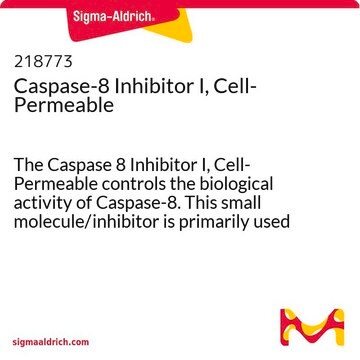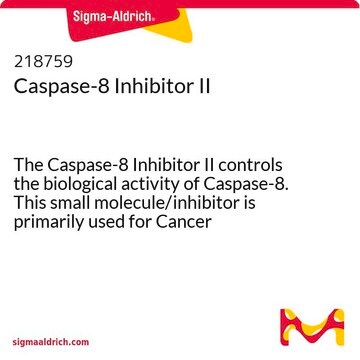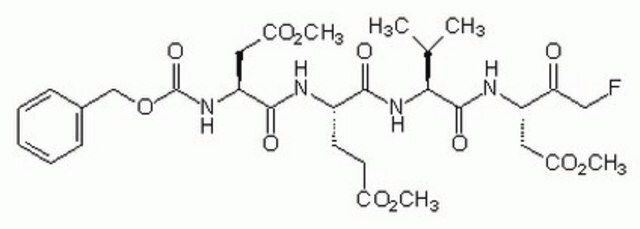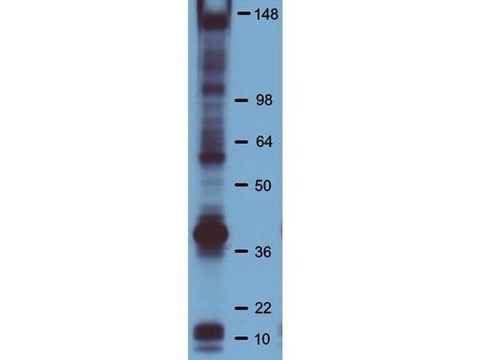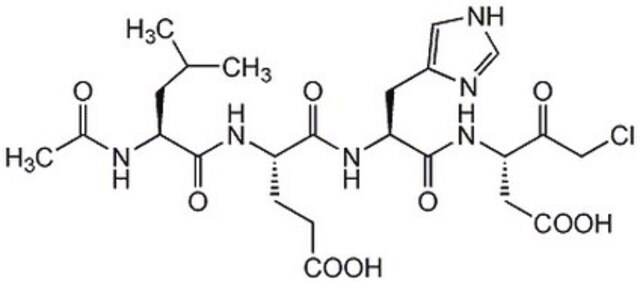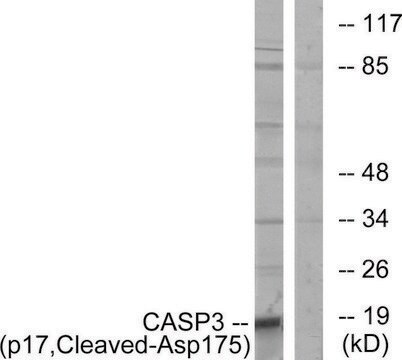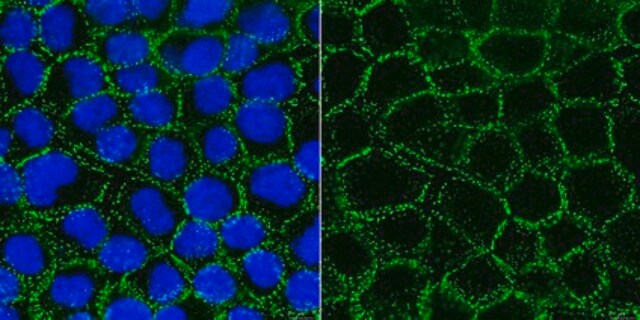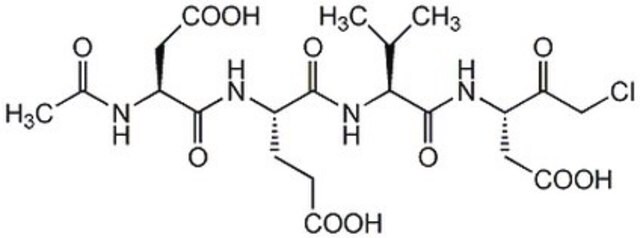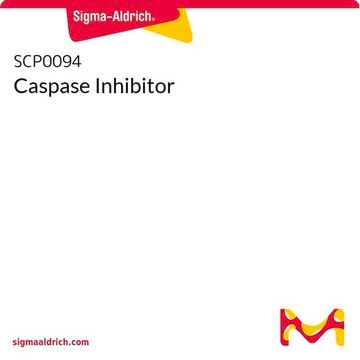218776
Caspase-9 Inhibitor II, Cell-Permeable
The Caspase-9 Inhibitor II, Cell-Permeable controls the biological activity of Caspase-9. This small molecule/inhibitor is primarily used for Cancer applications.
Synonym(s):
Caspase-9 Inhibitor II, Cell-Permeable, LEHD-CHO, Cell-permeable
Sign Into View Organizational & Contract Pricing
All Photos(1)
About This Item
Empirical Formula (Hill Notation):
C97H162N22O25
Molecular Weight:
2036.46
UNSPSC Code:
12352200
NACRES:
NA.54
Recommended Products
Quality Level
Assay
≥95% (HPLC)
form
lyophilized solid
manufacturer/tradename
Calbiochem®
storage condition
OK to freeze
desiccated (hygroscopic)
color
white
solubility
DMSO: 5 mg/mL
shipped in
ambient
storage temp.
−20°C
General description
A potent, cell-permeable and reversible inhibitor or caspase-9.
A potent, cell-permeable, and reversible inhibitor of caspase-9. May also inhibit caspase-4 and caspase-5. The N-terminal sequence (amino acids 1-16) corresponds to the hydrophobic region of the signal peptide of Kaposi fibroblast growth factor and confers cell permeability to the peptide.
Biochem/physiol Actions
Cell permeable: yes
Product does not compete with ATP.
Reversible: yes
Warning
Toxicity: Standard Handling (A)
Sequence
Ac-Ala-Ala-Val-Ala-Leu-Leu-Pro-Ala-Val-Leu-Leu-Ala-Leu-Leu-Ala-Pro-Leu-Glu-His-Asp-CHO
Legal Information
CALBIOCHEM is a registered trademark of Merck KGaA, Darmstadt, Germany
Storage Class Code
11 - Combustible Solids
WGK
WGK 1
Flash Point(F)
Not applicable
Flash Point(C)
Not applicable
Certificates of Analysis (COA)
Search for Certificates of Analysis (COA) by entering the products Lot/Batch Number. Lot and Batch Numbers can be found on a product’s label following the words ‘Lot’ or ‘Batch’.
Already Own This Product?
Find documentation for the products that you have recently purchased in the Document Library.
Kamila Říhová et al.
Journal of proteome research, 23(8), 2999-3011 (2024-03-19)
Caspase-9 is traditionally considered the initiator caspase of the intrinsic apoptotic pathway. In the past decade, however, other functions beyond initiation/execution of cell death have been described including cell type-dependent regulation of proliferation, differentiation/maturation, mitochondrial, and endosomal/lysosomal homeostasis. As previous
Aditi A Kapasi et al.
Immunology, 108(3), 313-320 (2003-02-27)
Clinical reports suggest that acute ethanol intoxication is often associated with lymphopenia. Previously, ethanol was reported to invoke thymocyte apoptosis. We studied the effect of ethanol on T cell apoptosis. In addition, we evaluated the molecular mechanism of ethanol-induced T
Our team of scientists has experience in all areas of research including Life Science, Material Science, Chemical Synthesis, Chromatography, Analytical and many others.
Contact Technical Service